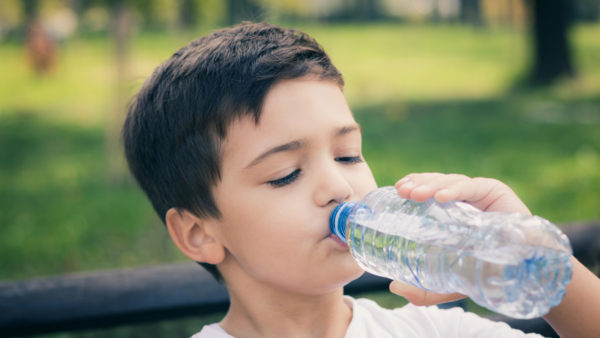Smart ways to up your water intake and stay hydrated – Times of India

Symptoms of Dehydration
Recognizing the signs of dehydration is crucial for prompt intervention.Symptoms may vary depending on the severity but commonly include:
Dry or Sticky Mouth
Thirst
Decreased Urination or Darker Urine
Fatigue or Irritability
Headache
Dizziness or Lightheadedness
Dry Skin
Sunken Eyes
Severe dehydration can lead to more serious symptoms such as confusion, rapid heartbeat, sunken fontanelles (in infants), and even fainting. It’s essential to seek medical attention immediately if your child exhibits these signs.
Regulate water intake
Water should be the primary beverage throughout the day. Encourage yourself to drink water regularly, not just when they feel thirsty. Provide a reusable water bottle and remind them to take sips between the day. A general guideline is to aim for at least half their body weight in ounces of water daily.
Include hydrating foods
According to Dr.Amit Gupta, Senior Consultant Pediatrician & Neonatologist, Motherhood Hospital, Noida, “Incorporate fruits and vegetables with high water content into your meals and snacks. Foods like watermelon, oranges, strawberries, cucumbers, celery, and tomatoes not only hydrate but also provide essential vitamins and minerals. Consuming these ensures you have access to hydrating options during the day.”
Limit sugary drinks
Avoid drinking sugary drinks, sodas, energy drinks, and excessive amounts of juice in your child’s lunch. These beverages can contribute to dehydration and provide unnecessary calories and sugar. Opt for milk or diluted fruit juices if you prefer flavored drinks, but emphasize water as the primary choice.
Make hydration fun
Experiment with infused water using natural flavors like lemon, mint, or berries. Use colorful and themed water bottles that you find appealing. Consider creating a reward system where they earn small incentives for meeting their hydration goals, fostering positive reinforcement.
Educate about dehydration symptoms
Learn to recognize the signs of dehydration, such as dry mouth, dark urine, or feeling dizzy or tired. Emphasize the importance of drinking water before, during, and after physical activities, especially in warm weather.
Why do children get dehydrated?
Children are particularly prone to dehydration due to several reasons. Their smaller bodies have a higher surface area to volume ratio, meaning they lose water more rapidly through perspiration and breathing. Additionally, their developing kidneys may not efficiently conserve water, making it easier for them to become dehydrated, especially in hot weather or during physical activities. Common causes of dehydration in children include:
Insufficient Fluid Intake: Many children simply do not drink enough water throughout the day, particularly when engaged in school activities.
Increased Water Loss: Active play, sports, and warmer temperatures can accelerate fluid loss through sweating.
Illnesses: Fever, vomiting, and diarrhea can lead to significant fluid loss and dehydration if not properly managed.
Preference for Sugary Drinks: Children often favor sugary beverages over water, which can contribute to dehydration due to their diuretic effect.

According to Dr. Godwin Samuel, co-founder, Amura Health, “Hydration is not as simple as drinking water, the body has to retain it as well. The water has to reach the tissues and stay there. Many factors play a role in it. Sodium, Potassium and Chloride are important minerals that help in retention of fluid in the blood vessel and in the tissues!”
Vitamin C prevents loss of water from the skin and hence maintains skin hydration. Similarly, Vitamin A maintains moisture in the respiratory tract. There are also different hormones which are responsible to retain hydration at cellular level – ADH, Aldosterone, Cortisol and Oestrogen. If any of these hormones fall you will observe the consequence of low fluid in the body.
When people work on losing weight, they don’t retain fluid even if they drink a lot of water due to lack of nutrients, that makes them very lethargic which makes them give up. You will observe low blood pressure, dry skin, dry mouth and tiredness if you are not well hydrated for any of the above reasons. So if you feel dehydrated even after drinking a lot of water, it’s time to look deeper!
Water Hack? How H2O Can Unlock Your Weight Loss Journey!






